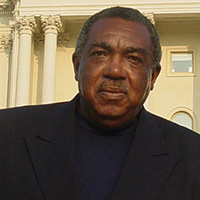By A. Peter Bailey
(Trice Edney Wire) – When reading, watching or listening to most of the commentary By black columnists, editorial writers, television and radio talk show hosts, politicians, educators, playwrights, songwriters, etc., I remember a column I wrote 13 years ago.
Entitled “Telling It Like It Is Is Not Enough,” it included the following: “By the mid-1970s right up to today, too many of the above-mentioned communicators have used the slogan “Tell Like It Is” not as a tool for motivating, enlightening or educating black folks but as one with which to excite and titillate whites and too many Blacks. And sense this is the message that their film and play producers, record companies, book publishers, and magazine and newspaper editors want they are amply rewarded.”
I also noted that in “newspaper after newspaper columns, magazine after magazine columns, movie after movie, play after play, book after book, song after song, they reinforced stereotypes of Black communities, especially those in urban areas. For instance, if they have to decide whether to focus their commentary on the young dude who takes the easy route of becoming a weapon of destruction in his community or the one next door to him who resist that path and becomes a positive force in his community, the commentators far too often focus on the former in their coverage. When criticized for pandering to white stereotypes, the perpetrators respond with an indignant ‘What’s your problem? I just tell it like it is.’”
People in those Black communities can see that by themselves. What they need are honest commentators, including preachers who, at least sometimes, tell them like it can be, like it should be, like it must be if they seriously desire to improve Black communities.
In doing that, concerned Black commentators will make a major contribution in helping Black folks to promote and protect our health, economics, cultural, educational, political, technological, legal and communications interests in a basically White supremacist society
















